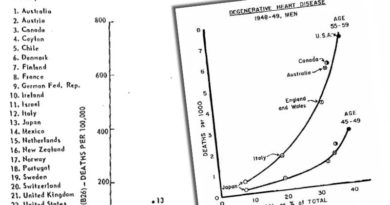The five healthy behaviours that we don’t do
This week’s story did not come from the newspapers, but it would make a great story. I have just sent the manuscript for my PhD to my supervisor and he’s reading through it now. There are likely still amends and then there’s the viva, but hopefully I’m on the home straight. One of the best bits about doing the research has been meeting one of the original lead researchers in the field of dietary trials: Professor Peter Elwood. Peter was involved in the Diet And Reinfarction Trial (known as the DART study) and the Caerphilly observational study. He was thus instrumental in both a randomised controlled trial and what we call an epidemiological study. Peter is an emeritus professor at Cardiff University and he still has an office there, years beyond retirement age for most people. He is a personal picture of health if you’re interested.
The DART study
The DART study involved 2,033 men who had already had a heart attack. There were three different interventions: 1,018 were given advice to reduce total fat intake to 30% of total energy and to increase the ratio of polyunsaturated fat to saturated fat to 1.0. (The other 1,015 were given no fat advice). 1,015 were given fish advice – to eat two portions of 200-400g of oily fish per week. (1,018 were given no fish advice). 1,017 were given advice to increase fibre intake to 18g daily (the other 1,016 were given no fibre advice). There were thus eight possible combinations of advice that the men could be receiving: fat alone; fat and fish; fat and fibre; fat, fish and fibre; no advice at all; fish alone; and fibre alone.
The number of men involved was high enough such that the impact of any one piece of advice could be isolated statistically. The findings of the study were that:
The rest of this article is available to site subscribers, who get access to all articles plus a weekly newsletter.
To continue reading, please login below or sign up for a subscription. Thank you.




